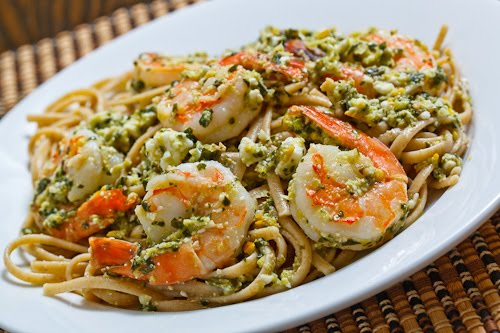 There’s nothing like a bout of Linda-Blair-in-the-Exorcist-like vomiting to remind oneself how quickly one’s attitude about something can change.
There’s nothing like a bout of Linda-Blair-in-the-Exorcist-like vomiting to remind oneself how quickly one’s attitude about something can change.
It makes me wonder which long-held beliefs are non-negotiable and which could be subject to change should life’s conditions become suddenly altered.
This is a gross and silly example, but it serves to frame the topic:
On Saturday, a friend came to my house for a poker game with a huge aluminum tray of pasta – about five pounds of farfadelle with shrimp and sun-dried tomatoes in a cream pesto sauce. My wife and children had just left for a weekend trip, so the mouse – yours truly – quickly moved in his old card-playing crew, six paunchy and half-balding men who regularly played cards with me in my 20’s, when we were paunchy with full heads of hair.
The pasta’s arrival was notable for two reasons 1.) It served as a jarring reminder of how old we all had become. When did people start showing up at poker games with farfadelle with shrimp and sun-dried tomatoes in a cream pesto sauce?, and 2.) the very site and smell of the stuff told me that my stomach might not be in optimal shape.
The game began, and I declined several invitations to “get a plate.” My pasta-wielding friend persisted: “Try it; you’re gonna love it,” he pressed between each hand of cards. “I picked it up from the restaurant specially for you.”
I politely peeked at it. I sniffed it, poked it, and lied. I told him it was, perhaps, the finest looking tray of pasta I had ever laid my eyes on, but “maybe a little bit later.
But it was too late already. The cream pesto sauce was in my head – in my olfactories — and no matter how intriguing the combinations of cards dealt to me – I won five of the first ten hands — I couldn’t get the image and stink of that slimy green yuck out of my thinking.
Even after my second hour of vomiting it was there. The brain can be brilliantly photographic when it needs a catalyst to purge a threatening bacterium – or whatever I had in my stomach – and in my case that photograph was of a big pink shrimp in a pool of green goo with a sun-dried eyebrow-looking-thing dangling across it. Sorry everyone.
I spent a better part of 24-hours on a bathroom floor. And that shrimp and pasta dish – which I hadn’t even tasted – was with me every heave of the way.
And then on Monday I awoke, starving. And there, again, was that pasta in my head, but this time in an entirely new light. I was ravenous, and, miracle upon miracle, there was four-and-a-half-pounds of the most delicious-looking farfadelle with shrimp and sun-dried tomatoes in a cream pesto sauce downstairs in my fridge. (Delicious it was – even had hints of truffle oil.)
I rarely get that sick, but whenever I do, it makes me go through the same thought process as soon as I rebound: How can a temporary illness alter one’s perspective so quickly and so dramatically? Or, more exactly, how can one’s thinking be so altered by how one feels at any given time? And yet it can be.
Experiences do that, too, of course. Often permanently. Reagan press secretary James Brady became an ardent gun-control activists after being shot by John Hinkley Jr., and the old adage that a conservative is a liberal who’s been mugged has truth to it. Otherwise rational people become 100% convinced they are entitled to a rent-stabilized apartment because they live in one, and staunch social conservatives can turn into libertarians after a child comes out of the closet. But those are dramatic examples.
It’s the everyday stuff I wonder more about – income and education levels, age, physical health, living environment, job and marital status, family support structure, etc. How much do those things effect our individual political and philosophical outlooks on life? Which of our beliefs are truly objective and which might be proven subjective at the end of the day?
One more plate of this pasta probably isn’t going to tell me, but it sure has me thinking…
But how many pounds did you lose?